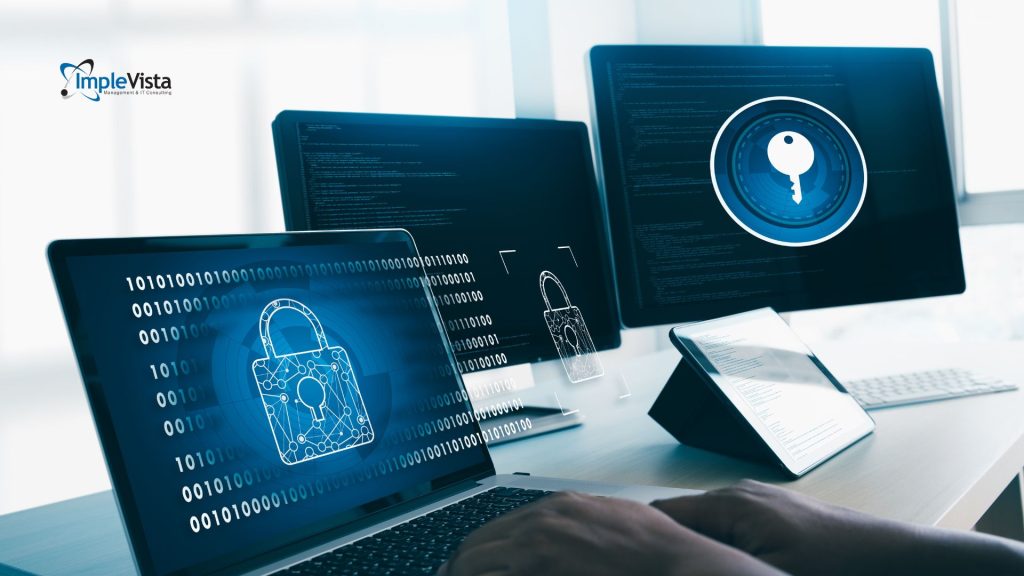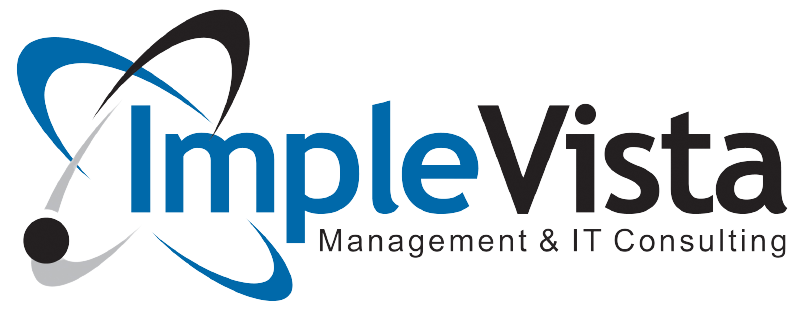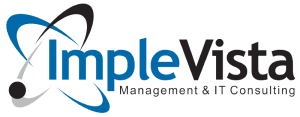Blockchain is more than a buzzword—it drives Future Software Solutions, offering unmatched security, transparency, and innovation for the digital age.
As digital transformation accelerates, businesses worldwide explore innovative technologies to stay competitive. Among these technologies, blockchain is a powerful force shaping future software solutions. With its promise of transparency, security, and decentralization, blockchain redefines how software is developed and deployed across industries.
What Is Blockchain and How Does It Work?
Blockchain is a decentralized, distributed ledger technology that allows data to be stored securely and transparently across multiple nodes in a network. Each block contains a list of transactions; once added, it cannot be altered. This ensures data integrity, security, and trust without the need for centralized control.
Key Features of Blockchain:
- Decentralization: No single entity controls the data.
- Immutability: Once recorded, data can’t be changed.
- Transparency: Every transaction is visible to participants.
- Security: Cryptographic encryption protects data.
These core principles make blockchain ideal for future software solutions that demand security, integrity, and trust.

Why Is Blockchain Secure?
Blockchain technology provides exceptional security due to its decentralized and cryptographic nature. Each transaction is validated through consensus algorithms and is recorded on a ledger that cannot be altered. Since data is stored across multiple nodes, tampering with a single node does not affect the entire system’s integrity. Furthermore, encryption, hashing, and digital signatures ensure that only authorized parties can access or verify transactions.
Security Highlights:
- Tamper-proof data structure
- Peer-to-peer validation
- Public and private key infrastructure
- Resistance to common cyberattacks like DDoS
This makes blockchain particularly attractive for future software solutions that handle sensitive data or require high levels of trust and security.

The Role of Blockchain in Future Software Solutions
As software systems continue to evolve, integrating blockchain technology is emerging as a transformative approach to solving long-standing security, transparency, and trust challenges. Its decentralized architecture and cryptographic foundations make it a compelling asset for next-generation software solutions.
-
Enhanced Security for Software Applications
One of blockchain’s primary strengths is its robust security features. By decentralizing data storage and employing advanced cryptographic algorithms, blockchain significantly reduces the risk of data breaches, unauthorized access, and tampering. Unlike traditional centralized systems that present a single point of failure, blockchain distributes data across multiple nodes, making it extremely difficult for malicious actors to manipulate or steal information.
Use Case: In human resource (HR) systems, blockchain can securely manage digital identities, ensuring that employee data is tamper-proof and accessible only to authorized parties. Similarly, in healthcare applications, it can protect sensitive patient records, reducing the risk of data leaks and enabling secure sharing among medical professionals.
-
Boosting Trust Through Transparency
Blockchain technology brings a new level of transparency to software applications, which is especially valuable in sectors that rely heavily on traceability and auditability. Every transaction on a blockchain is timestamped, encrypted, and permanently recorded, ensuring that data cannot be altered retroactively. This immutable record fosters trust among stakeholders by enabling complete visibility into data flows and system activities.
Example: In supply chain management software, blockchain enables real-time tracking of goods from origin to delivery. Companies and consumers can verify the authenticity of products, detect inefficiencies, and prevent counterfeiting, enhancing overall trust in the supply chain ecosystem.
-
Powering Decentralized Applications (DApps)
Decentralized applications, or DApps, operate on distributed networks rather than centralized servers, offering increased resilience, uptime, and fault tolerance. By removing central control, DApps can reduce dependency on single points of failure and enable more secure and autonomous peer-to-peer interactions.
Popular Use Cases Include:
- Decentralized finance (DeFi) platforms allow users to lend, borrow, and trade assets without intermediaries.
- Decentralized social media applications that protect user data and resist censorship.
- Blockchain-based file storage systems like IPFS or Filecoin offer secure, distributed data storage.
-
Smart Contracts Automate Processes
Smart contracts are self-executing programs that run on the blockchain and automatically enforce the terms of an agreement when predefined conditions are met. They eliminate the need for intermediaries, reduce the risk of human error, and streamline workflows across industries.
Example: In the real estate industry, smart contracts can be integrated into property transaction platforms to automate tasks such as title transfers, escrow releases, and payment confirmations. Once payment is verified, ownership is transferred instantly, reducing time, cost, and paperwork.
-
Improved Data Integrity and Privacy
Blockchain’s immutable ledger ensures that it cannot be altered or deleted once data is recorded. This guarantees the accuracy and consistency of information over time, which is critical in industries where data authenticity is paramount. Advanced encryption methods and permissioned blockchains can enhance privacy, giving users more control over their data.
Application Areas: In healthcare, immutable patient records can prevent medical errors and improve treatment accuracy. Blockchain can securely store case files and evidence in legal systems, ensuring they remain intact and verifiable. In financial services, transaction data preserved on a blockchain enhances auditability and regulatory compliance.
How Blockchain Development Is Shaping the Software Industry
Blockchain Development Trends:
- Hybrid Blockchains: These systems combine the benefits of public and private blockchains. For enterprises, this means maintaining privacy over sensitive data while leveraging the transparency and decentralization of public chains.
- Interoperability Solutions: A significant challenge in blockchain has been isolating different networks. Modern development trends focus on enabling seamless communication between blockchains, enhancing scalability, and facilitating more complex decentralized ecosystems.
- Tokenization of Assets: Businesses increasingly tokenize real-world assets such as property, stocks, or even art. This simplifies transactions, enhances liquidity, and enables fractional ownership, creating new software models across real estate and finance sectors.
- Sustainable Blockchain: With concerns about the environmental impact of blockchain, especially proof-of-work systems, developers are now adopting energy-efficient consensus mechanisms like proof-of-stake (PoS) and delegated PoS. This trend supports environmentally responsible software innovations.
These trends dramatically reshape how future software solutions are designed and implemented, especially in critical sectors such as fintech, healthcare, logistics, and government services.

Benefits of Using Blockchain in Software Development
Faster Transactions
Blockchain significantly reduces the time it takes to complete transactions by removing the need for intermediaries or third-party validation. This leads to near-instant processing, which is especially useful for applications involving digital payments, supply chain tracking, or global remittances. Eliminating manual approvals and bank clearances allows for quicker execution of contracts, transfers, and data synchronization.
Cost Savings
Businesses can dramatically reduce operational and administrative costs by automating workflows through smart contracts and eliminating manual processes. It reduces reliance on third-party platforms, auditors, and legal mediators. In the long term, blockchain development results in leaner, more efficient software systems that offer better ROI.
Greater Compliance
Blockchain’s transparent and immutable ledger acts as a built-in audit trail. It simplifies adhering to regulatory requirements by providing verifiable records that regulators can trust—reducing the cost and complexity of compliance. Financial institutions, healthcare providers, and logistics companies can all leverage this to ensure adherence to industry standards and government mandates.
User Empowerment
With blockchain, users gain more control over their data. Instead of relying on central authorities or service providers, users can manage access to their information directly, enhancing privacy, autonomy, and trust in digital services. Self-sovereign identity systems and encrypted personal data vaults are becoming increasingly common in next-generation applications.
Innovative Business Models
Blockchain enables entirely new business models. From microtransactions in content platforms to Decentralized Autonomous Organizations (DAOs) for community-led governance, the technology supports structures that were previously impractical or impossible using traditional systems. It opens up new opportunities in gig economy apps, tokenized reward systems, and blockchain-based crowdfunding.
Why Businesses in Bangladesh Should Care
As Bangladesh rapidly embraces digital transformation, future software solutions driven by blockchain technology are becoming increasingly essential for sustainable business growth. With the government promoting “Digital Bangladesh” and the private sector investing heavily in IT infrastructure, blockchain offers a timely and strategic advantage.
Cybersecurity threats are rising, especially as businesses transition online. Blockchain’s tamper-proof, decentralized architecture can significantly reduce the risk of data breaches, fraud, and identity theft, particularly relevant to Bangladeshi banks, fintech startups, and e-commerce platforms. Additionally, industries like ready-made garments (RMG), logistics, and healthcare can leverage blockchain to increase supply chain transparency, traceability, and regulatory compliance.
Moreover, as global markets demand higher accountability and data integrity, blockchain ensures verifiable records and real-time audits, helping Bangladeshi companies meet international standards like GDPR and ISO. This builds customer trust and opens doors to foreign partnerships and exports.
By integrating blockchain into software solutions, Bangladeshi enterprises can innovate with decentralized applications, launch new revenue models such as token-based loyalty programs or digital identity services, and future-proof their business operations in a competitive digital economy.

FAQs: Blockchain’s Role in Future Software Solutions
As Bangladesh’s leading IT service company, Implevista often answers questions about emerging technologies. Here are common queries about blockchain’s role in future software solutions:
What is the core concept of blockchain?
Blockchain is a decentralized, distributed, and immutable ledger that securely records transactions across a network of computers. Once a record is added, it cannot be changed.
How does blockchain enhance data security in future software solutions?
Blockchain ensures data integrity through its immutable nature; once data is recorded on a block, it is cryptographically linked to previous blocks, making it virtually impossible to alter or delete without detection.
What are Decentralized Applications (dApps)?
Decentralized applications (dApps) run on a decentralized peer-to-peer network (like a blockchain) rather than a single central server, offering enhanced resilience, transparency, and user control.
Can blockchain replace traditional databases for all future software solutions?
No, blockchain is not a universal replacement for all traditional databases. It best suits scenarios requiring high data integrity, transparency, multi-party trust, and immutability. It often complements, rather than replaces, existing database systems.
What role do smart contracts play in blockchain development?
Smart contracts are self-executing contracts with predefined terms written directly into code on a blockchain. They automate processes and ensure agreement execution without intermediaries, which is crucial for many future software solutions.
Summing Things Up
The journey towards truly robust, secure, and decentralized digital ecosystems is underway, and blockchain technology is undoubtedly at its forefront. Its inherent properties of immutability, transparency, decentralization, and cryptographic security position it as a cornerstone for building the next generation of software solutions. From enhancing data integrity and automating complex processes with smart contracts to powering resilient, decentralized applications (dApps) and revolutionizing entire industries like supply chain and finance, blockchain’s impact will be profound and far-reaching.
At Implevista, we are not just witnessing this revolution; we are actively shaping it. As a leading IT service company in Dhaka, Bangladesh, we are committed to helping businesses navigate the complexities of blockchain development and leverage its power to build innovative, secure, and truly transformative future software solutions. The time to explore blockchain is now.
Ready to explore how blockchain can transform your business with cutting-edge software solutions?
Contact Implevista today for a personalized consultation and begin your journey into the future of decentralized technology!




